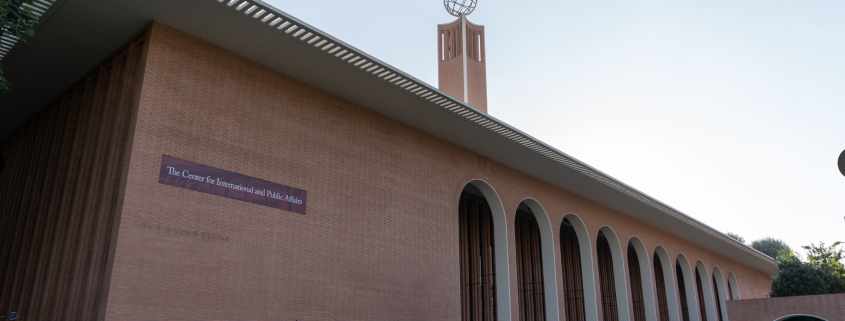USC students debate abortion, free speech

Bathed in blue and red lights, Tommy’s Place transformed from a concert venue into a debate forum for the USC Center for the Political Future’s semiannual political debate Tuesday. Students from the Trojan Democrats and the USC GOP discussed pressing issues such as the overturning of Roe v. Wade and the state of free speech on Twitter.
The debate — co-sponsored the Political Student Assembly and the Political Union — was co-moderated by Darik de Jong, a junior majoring in philosophy, politics and economics and president of the Political Union, and Sophia Perez, a junior majoring in political science and executive director of the Political Student Assembly.
Perez said the format of this debate differed from previous years: the total time per round was shortened, and there are more structured opportunities for cross debate.
“In the past, we’ve had some moments where debaters would run out of things to say at the end of the cross debate,” Perez said. “We altered it a little bit to have two questions on the same topic, but to provide more nuance to the topic we were addressing.”
The debate centered around four topics: the politicization of the U.S Supreme Court, U.S. inflation, criminal justice and the censorship of political figures. The Political Union and Political Student Assembly chose the topics based on polling data regarding issues that concern Gen Z voters the most, according to Kevina Collins, a senior majoring in history and political science and director of public affairs for the Political Student Assembly. Each round, a new representative from each side debated the topic for 20 minutes total before moving on.
During the first round, students debated whether or not the Supreme Court has become politicized, especially with a 6-3 conservative supermajority emerging in the court after the appointment of Justice Amy Coney Barrett in 2020. The second portion of the round focused on the Dobbs v. Jackson decision which removed the constitutional protection for abortion.
Juan Pablo Moreland, a sophomore majoring in philosophy, politics and economics, represented the USC GOP side for this round.
“Speaking itself was pretty nerve-racking . . . It was pretty much my first experience ever doing something like that,” Moreland said. “Everyone else did pretty well. It was entertaining to hear the arguments or some more heated discussions after me. It was cool to be up there.”
Following the discussion surrounding the Supreme Court and abortion was an equally topical conversation surrounding inflation in the U.S., especially after midterm polls revealed inflation to be a top concern among voters. John Ostling, a junior majoring in history, noted that the second round became tense between the two debaters.
“In the end, [the speaker from the USC GOP] was almost rude,” Ostling said. “The whole debate was pretty mild-mannered and respectful . . . I felt [the second round] was sort of a low point during the debate.”
Midterm voters also displayed concern over crime and safety. FBI data noted that murders rose nearly 30% from 2019 to 2020 — the largest single-year increase in the U.S. in over a century. The next round addressed potential causes for these concerns, as well as the topic of police reform.
With Elon Musk’s $44 billion purchase of Twitter in October 2022, the following round’s focus on the regulation of free speech in private social media platforms proved especially relevant. Debaters discussed whether or not the ban of former President Donald Trump on Twitter was a violation of the First Amendment, and to what extent public figures should be scrutinized for their speech.
Ashlee Williams, a senior majoring in law, history and culture and art history, found a comment from the USC GOP speaker concerning.
“[The debater mentioned that] ‘People could have owned slaves, and I don’t think they are bad [people],’ which is, of course, a very tenuous argument,” Williams said. “That demonstrates how some of these issues are just debate topics for people without being grounded in reality, without being grounded in the truth of these topics . . . in people’s real lives.”
Williams said a few students walked out of the debate room upon hearing this comment. Once the debate ended, students including Williams confronted the speaker and voiced their opinions.
“Several students of different backgrounds went and talked to that particular debater, and he engaged in conversation with some of them,” Williams said. “He was respectful enough to answer questions about his statements. I think that’s something to note for sure, and I definitely appreciate that.”
Moreland said the comment was not a reflection of the entire performance of the USC GOP’s side of the debate.
The Political Union and Political Student Assembly have started the process of taking all feedback from debaters and attendees into consideration. An official statement is forthcoming.
“Regardless of how previous debates have gone, and how this one may have been perceived, I think it’s important to continue civic discourse on campus among both the Trojan Dems and USC GOP,” Collins said. “Having debaters speak in front of students is important to growing civic engagement. I was really glad to see students showing up.”

